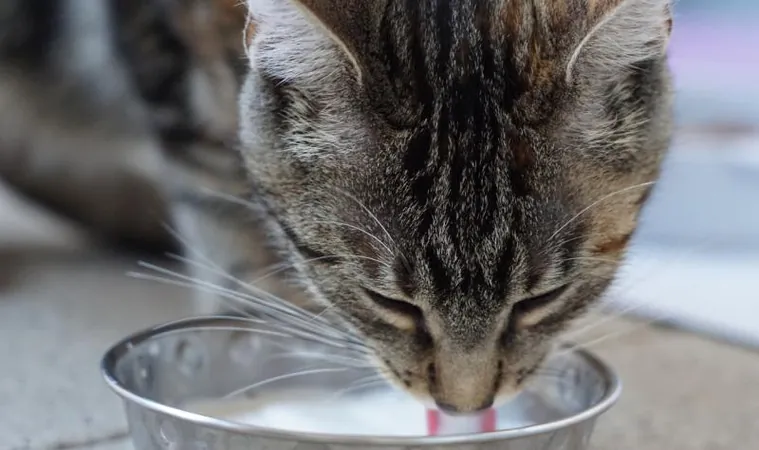
Avian Flu Alert: Feline Fatalities Linked to Contaminated Raw Milk Amid Zoo Outbreak in Arizona
2024-12-12
Author: Emily
Avian Flu Alert: Feline Fatalities Linked to Contaminated Raw Milk Amid Zoo Outbreak in Arizona
A serious health alert has been issued regarding potential avian flu infections in cats and zoo animals following alarming reports tied to contaminated raw milk in Los Angeles County and a recent outbreak at a zoo in Arizona.
Investigation of Cat Fatalities in Los Angeles
The Los Angeles County Department of Health revealed that officials are investigating two indoor cats whose health deteriorated after consuming raw milk from Raw Farms, which has since been recalled. Symptoms included loss of appetite, fever, and neurological signs, ultimately leading to the tragic deaths of both felines. Testing confirmed the presence of influenza A, presumed to be H5 avian flu, which is notably rare in cats. Authorities are now conducting further confirmation tests to fully understand the situation. This incident reinforces earlier findings where similar cases arose in cats due to consumption of infected raw milk from dairy farms.
Health Precautions and Warnings
Health officials have also warned that individuals exposed to the sick cats are being monitored and offered antiviral prophylaxis as a precautionary measure. Barbara Ferrer, the director of public health for LA County, emphasized the importance of avoiding raw dairy products and undercooked meats to prevent the spread of avian flu, particularly the H5 strain, which has shown devastating effects on animal populations.
Zoo Outbreak in Arizona
In a troubling series of events, the Wildlife World Zoo in Maricopa County, Arizona, confirmed an outbreak of avian flu affecting various animals, with tests indicating positives for the H5N1 strain. This outbreak has resulted in the sad loss of a cheetah, a mountain lion, as well as multiple bird species, including a kookaburra and an Indian goose. A white tiger is reportedly responding well to treatment after being infected. The zoo is taking extensive safety measures by isolating affected animals and working closely with health authorities to monitor staff and volunteers who might have been exposed.
National Concerns and Biosecurity Measures
The U.S. Department of Agriculture (USDA) has reported multiple outbreaks affecting dairy cattle in California and commercial poultry farms in states like Iowa and Oklahoma, leading to significant concerns about the virus affecting animal agriculture on a national scale. The total confirmed cases of avian flu in dairy cattle across 16 states now exceed 832. States like Louisiana and Missouri are also observing upticks in avian flu cases among wild birds, urging the public to keep their pets away from wildlife and to report sick or deceased birds promptly.
Conclusion and Call to Action
As these alarming developments unfold, authorities are doubling down on biosecurity measures and public safety protocols to mitigate the risks posed by avian flu. They continue to stress vigilance among pet owners and emphasize the necessity of avoiding contaminated food sources to protect both pets and public health.
Stay tuned as this story develops, and remember: when it comes to avian flu, safe eating habits can save lives!









 Brasil (PT)
Brasil (PT)
 Canada (EN)
Canada (EN)
 Chile (ES)
Chile (ES)
 Česko (CS)
Česko (CS)
 대한민국 (KO)
대한민국 (KO)
 España (ES)
España (ES)
 France (FR)
France (FR)
 Hong Kong (EN)
Hong Kong (EN)
 Italia (IT)
Italia (IT)
 日本 (JA)
日本 (JA)
 Magyarország (HU)
Magyarország (HU)
 Norge (NO)
Norge (NO)
 Polska (PL)
Polska (PL)
 Schweiz (DE)
Schweiz (DE)
 Singapore (EN)
Singapore (EN)
 Sverige (SV)
Sverige (SV)
 Suomi (FI)
Suomi (FI)
 Türkiye (TR)
Türkiye (TR)
 الإمارات العربية المتحدة (AR)
الإمارات العربية المتحدة (AR)